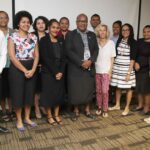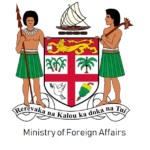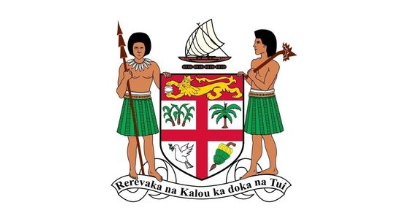
Ministry Pursues Training in French Language Skills Development
10/08/2020
Statement from the Acting Permanent Secretary for Health and Medical Services
01/09/2020Published On: 28/08/2020
Honourable Ministers;
Permanent Secretaries;
Heads and Representatives of Civil Societies
and the Private Sector;
Participants.
Bula Vinaka and good morning.
I’m pleased to be here to kick-off our national consultation workshop on the Pacific’s long-term regional strategy: the “2050 Strategy of the Blue Pacific Continent”.
Pacific Leaders announced this document at the last Pacific Islands Forum Meeting, and it has since undergone regional and sub-regional consultations. This stage is dedicated to “drivers of change” –– forces such as technology, labour mobility, and transportation, all of which will no doubt shape the next 30 years of our region’s development.
Of course, nothing will drive change for our region and for the world more forcefully than our changing climate. As we gather this morning, Hurricane Laura is slamming the Gulf of Mexico –– a storm forecasted by the National Hurricane Centre as “unsurvivable” for many.
We in Fiji have seen similar storms –– most recently, Cyclone Harold. Every cyclone season, these storms will become stronger. Every year, the urgency for climate action intensifies. So, as we send our prayers to our friends living along the Gulf of Mexico, let us reinforce those prayers with a commitment to maintain our momentum for climate action–– unmoved from our position to cap temperature rise at the 1.5-degree target.
The climate emergency has taught our people hard lessons about the nature of change. We know it can be sudden. We know it can be unpredictable. At times, we know it can be terrifying. In the year since Leaders met in Funafuti, COVID-19 has driven home those lessons yet again –– as it has claimed lives, closed borders, and driven the world economy into its sharpest-ever recession.
The arrival of this virus has revealed strengths in our healthcare systems and border controls, as it has exposed vulnerabilities in our economies. Like with climate change, its impacts are being felt in every country, every industry, and every community, inflicting suffering and uncertainty everywhere it touches.
The task has fallen to us to peer through the fog of the duel crises of climate change and the coronavirus, heed their lessons, adapt to their realities, and strive to answer the central question of this consultation: What do we want for the Pacific of 2050? This morning is a culmination of contributions from across government, the private sector and civil society to imbue our region’s 2050 Strategy with our people’s perspective.
The document’s stated vision calls for “a region of peace, harmony, security, social inclusion and increased prosperity, so that all Pacific people are leading free, healthy and productive lives”. All noble aspirations, surely –– but vague. So, let me speak plainly on what Fiji expects of our region over the next 30 years:
By 2050, every economy in our region must achieve net-zero global emissions –– zero excuses.
By 2050, we must have built a resilient Pacific – one that is adapted to the worsening climate impacts we know are headed our way.
By 2050, our region’s oceans must be secured by powerful protections that preserve their bounty and beauty for all time.
By 2050, we must call home a continent connected by air, by sea and by technology. And Fiji can and should sit at the centre, as the hub of travel, trade, ICT and development; and
by that mid-century mark, the divide between the developed and developing nations in our region must have given way to a level playing field, one defined by equal outcomes and opportunity.
Fiji’s sights have been set on that future for some time. We are reducing our emissions, we are building resilience, we are protecting our oceans, we are connecting our citizens to each other and to the region. We already have a 20-Year National Development Plan which lays out our strategic vision across every sector of government. That document is the starting point in our journey towards 2050. I know some Ministries have been left shooting in the dark when it comes to their contributions to these consultations, so let me be clear: Our National Development Plan must form the foundation of your contributions.
Because when it comes to the vast majority of the work required of Fiji to realise the vision behind the PIF’s 2050 strategy, we have done it, we are doing it, or we plan to do it. So, there is no need for Government to re-invent the wheel when it comes to national planning. This strategy in our chance to look outwards; to affect regional change by diagnosing the “drivers of change” affecting every Pacific Islander, as well as the citizens of Australia and New Zealand.
When it comes to any strategic plan, whether it’s the 2050 Strategy for the Blue Pacific Continent or our National Development Plan, there’s an important lesson I took from my years of service in our Navy. One is that a good captain knows how to chart a course, but the greatest captains know how to adapt when the going gets tough.
Without ever losing sight of their destination, they adjust for wind, they plan for currents, they sail around storms –– whatever it takes to complete the mission at-hand, they do. A good strategic plan can be our sail, our map and our compass all rolled into one –– but it is still only a tool. It is not an answer to every problem we will face. We are the captains, we are the ones who must make the day-to-day decisions that lead us to our destination.
To adapt to changes known and unknown, we must leave ourselves room to innovate. When we’re stretched thin, we must work smarter, and allocate resources more effectively. And to ensure the priorities of Pacific Island Countries don’t lose out to those of our larger neighbours, Pacific nations must speak clearly and together on where we differ, and on how those differences can be resolved.
Given the urgency and ambition of what we’re looking to achieve, we won’t always have time to spare for traditional Pacific politics. We can’t be overly constrained by protocol. Sometimes, we must be blunt about what we expect. And we must continue to push and prod our partners within this Forum and beyond to achieve the future we know is right and know is possible.
Next year, Fiji will host the PIF as Chair as this Forum enters its 50th year. By that time –– I pray –– the worst of the coronavirus will indeed be behind us. As Leaders gather at our shores, Fiji’s leadership of this Forum will determine the quality of regionalism that emerges from the ashes of this pandemic; and this Strategy will be at the heart of our ambition.
Ladies and Gentlemen, the changes brought by the global pandemic and climate emergency test our resilience every day. The silver lining is that they also reveal the power of Pacific co-operation.
In a moment of darkness, as we’ve wrestled with both COVID-19 and the devastating arrival of severe Cyclone Harold, the Pacific Islands Forum was at the centre of our region’s response –– serving as a pathway for humanitarian aid and assistance to communities enduring the one-two punch of coronavirus and climate change. And even as borders have been shut due to health restrictions, PIF nations have worked together to charter flights from around the world –– including from high-risk countries –– to safely repatriate our people.
Fiji has opened Pacific Pathways to Tuvalu, Kiribati and Tonga, extending a lifeline of passenger air travel to these countries at a time when it is badly needed. And I applaud Australia’s effort to ensure equitable access to a vaccine to the coronavirus in the Pacific –– once one emerges.
If we harness that spirit of regional collective action, we have good reason to hold faith in our progress for the next 30 years. And I believe –– despite the incredible challenges before us –– it is our people who can emerge as this century’s most powerful drivers of change.
That work starts here; that future begins today.
Vinaka vakalevu. Thank you.





